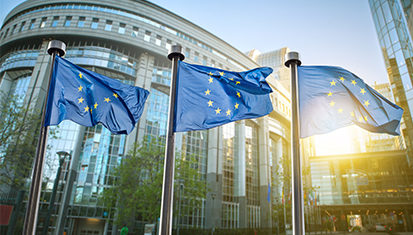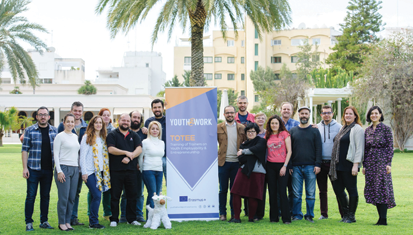COVID-19 and the impact on sport in the EU, by Diarmid Campbell-Jack
COVID-19 and the impact on sport in the EU, by Diarmid Campbell-Jack
In his latest blog, Diarmid Campbell-Jack (Ecorys Associate Director) outlines our recent work on COVID-19 and its impact on the sport sector across the EU.
One of the many challenges relating to COVID-19 has been assessing the likely economic impact of the pandemic across the economy and in various sectors. This is a critical task, with information helping governments and other organisations plan their response and work out where and how to allocate support. Different countries and sectors are likely to be affected in different ways, making it even more important to have accurate data and know what may work best to deal with issues.
As a result, Ecorys and our partners at SportEconAustria (SpEA) were commissioned by the European Commission’s Directorate General for Education, Youth, Sport and Culture (DG EAC) to undertake research on the economic impact of COVID-19 on the sport sector and to review relevant measures and initiatives being implemented across EU Member States. This involved two separate surveys, desk research and key stakeholder interviews. Our report is now publicly available and can be accessed here.
The economic analysis undertaken by SpEA highlighted the extent that COVID-19 will affect the sport sector. The most likely scenario for 2020 estimates the direct impact of the pandemic across the EU-28, including UK data as an additional extra to allow comparability. This showed a decrease of over 50 million Euros in GDP and a fall of over a million employees compared to what otherwise would have been the case. Sport clubs and facilities, as well as sport-related accommodation and transport are likely to be particularly affected, as are some of the EU Member States with larger economies.
This situation makes it vital that we continue developing and sharing measures and initiatives to provide support to the sector. Our report provides a comprehensive typology of different measures and initiatives, information on the range of approaches used, feedback on strengths and weakness, and case study examples providing valuable detail on how approaches are implemented.
Most importantly, both the economic analysis and the research into measures and initiatives have fed into a set of detailed recommendations to help the sector. These include the importance of showing the economic value of sport, publicising and fine-tuning funding streams, coordinating plans and using the strengths of the sector to link with other thematic areas such as health, innovation, tourism, transport or environment.
Our research has already formed the core of a recent high-level conference launched by Mariya Gabriel, European Commissioner for Innovation, Research, Culture, Education and Youth, on how the sport sector can recover from the COVID-19 crisis, with initial steps already being put in place based on the recommendations. For us at Ecorys, this work also links well with the support we provide to the SHARE initiative which aims to raise awareness on the role of sport and physical activity in the context of regional development, as well as other studies we are currently conducting for DG EAC on intergenerational sport across the EU or the mapping of steroid-related legislation across the Member States.
The report will be a valuable tool for governments and organisations across the EU, including valuable data not only at an EU level but also for individual Member States (and the UK) and for specific sectors. Given the current pandemic situation, we are keen to do what we can to make sure that this evidence helps the sector as much as possible. If you do have any questions or thoughts, then do contact Associate Director, Diarmid Campbell-Jack here.

30 November 2020
3 minute read


